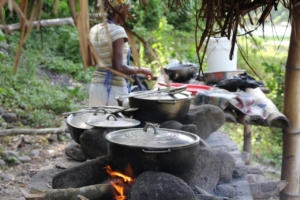Improving Healthcare in Jamaica

In the tourist’s eye, Jamaica is an enticing island with constant summer sun and alluring beaches. However, behind this guise, Jamaicans face a complicated reality. Healthcare in Jamaica is in desperate need of improvement. There is an increasing obligation to balance public access to health services with the practitioners’ ability to keep up with the enlarged workload.
Health Problems in Jamaica
Jamaica has many health issues that require an effective healthcare system. The top health issues that lead to premature death in Jamaica include stroke, diabetes, neonatal disorders, Ischemic heart disease and HIV/AIDS. Along with these issues, mental illness and STDs disproportionately affect Jamaica’s youth, and these often correlate with social and economic factors. The 2017 Global School Health Survey found that 24.8% of students seriously considered suicide and 18.5% of students attempted suicide over a 12 month period. In terms of STDs, only 31% of Jamaicans over the age of 15 and 51% of Jamaicans under 15 living with HIV were receiving treatment in 2018.
In order to try to make healthcare accessible to all Jamaica introduced free public health services to its citizens in 2008 by removing user fees. On the surface, this appears to be a positive step in removing the economic barrier that prevents the poor from receiving adequate healthcare. However, this has revealed deeper issues for healthcare in Jamaica.
Issues with Free Public Health Services
With the increase in patients, health practitioners have found themselves experiencing overwork and extreme stress. This shift has negatively affected the performance of these practitioners as patient demand has increased, but facilities remain understaffed. In 2016, researchers evaluated how the removal of charges has directly affected the workload. The study found that before the instigation of the free services, 50% of health practitioners had satisfaction with their workload. By 2016, eight years after the introduction of free healthcare, only 14% had satisfaction with their workload.
Some doctors interviewed for the study indicated that both the clinics and hospitals were seeing more patients daily after the elimination of charges. The quality of care worsened as medical professionals did not account for waiting times and availability of resources. The size of health clinics and the number of staff pale in comparison to the number of Jamaicans seeking care.
Along with the insufficient number of health practitioners, Jamaica’s medical infrastructures often do not match the demand of patients. Those in rural areas especially must travel long distances to access health care. The expansion of health facilities is extremely expensive. With Jamaica’s financial debt, this is not a project that it can take on lightly.
Also revealed in this situation is the scarcity of resources available to health clinics. The flood of patients has caused issues such as a delay of bloodwork and a shortage of medication. There have even been situations where patients had to purchase the medical supplies necessary for their surgery, costing an extreme amount that counteracts the efforts of free healthcare.
Upgrading Health Facilities
However, the failings of healthcare in Jamaica does not mean that the country is beyond help. In fact, the Minister of Health and Wellness announced in 2019 that over the next five years, Jamaica will be upgrading public health facilities with the funds of $200 million. The Minister plans to upgrade nine public health centers and six hospitals, one of which is the Cornwall Regional Hospital, which will benefit more than 400,000 residents. The Minister also plans to build a new Western Child and Adolescent Hospital, in addition to developing more sophisticated healthcare technology.
NGOs such as UNICEF are also doing work. The agency has established a Health Promotion program that works to provide quality health services to babies, adolescents and young mothers. The two goals of this program are to enhance institutional capacity to deliver effective health services and to boost the access of adolescents to these health services. By partnering with groups such as the Word Health Organization and Jamaica’s Ministry of Health and Wellness, UNICEF is carrying out its Baby-Friendly Hospitals Initiative, Adolescent-Friendly Services and Empowerment of Girls and Young Mothers.
Healthcare in Jamaica is lacking in many areas, but the country is doing continuous work to enhance health facilities and services. This progress shows that the country should see improvement in the future.
– Natascha Holenstein
Photo: Pixabay
